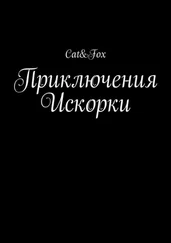When he reached the powdery sand on the upper reaches of the beach he saw that someone had been here before him; to his left was a double line of naked footprints, the mark of running feet. These, of course, would be Hilary Robarts's. She must, as usual, have taken her nightly swim. Subconsciously he noticed how distinct they were. She must have left the beach nearly an hour and a half ago, yet on this windless night the indentations were as plain in the dry sand as if they had just been made. The path through the trees lay in front of him leading out of moonlight into the enclosing shadows of the pine wood. And the night was suddenly darker. A low blue-black cloud had momentarily covered the moon, its ragged edges silvered with light.
He switched on his torch and played it over the path. It caught the gleam of something white to his left, a sheet of newspaper, perhaps, a handkerchief, a discarded paper bag. Feeling no more than mild curiosity he stepped from the path to investigate. And then he saw her. Her distorted face seemed to leap up at him and hang suspended in the bright glare of the torchlight like a vision from a nightmare.
Staring down, and for a moment transfixed, he felt a shock in which incredulity, recognition and horror fused into a second which made his heart leap. She was lying in a shallow depression of flattened marram grass, hardly a hollow but deep enough for the grasses on each verge to shield her body until he was almost on top of her. To her right, and partly beneath her, was a crumpled beach towel, striped in red and blue, and above it, placed precisely side by side, a pair of open sandals and a torch. Beside them, neatly folded, was what looked like a blue and white tracksuit. It must have been the edge of this which had first caught his eye. She lay on her back, the head towards him, the dead eyes upturned as if they had been fixed on him in a last mute appeal. The small bush of hair had been pushed under the upper lip, exposing the teeth, and giving the impression of a snarling rabbit. A single black hair lay across her cheek and he had an almost irresistible impulse to kneel and pluck it away. She was wearing only the bottom half of a black bikini and that had been pulled down over her thighs. He could clearly see where the hair had been sliced away. The letter L precisely in the centre of the forehead looked as if it had been cut with deliberation, the two thin lines precisely at right angles. Between the splayed and flattened breasts with their dark areolas and pointed nipples, milk-white against the brown skin of her arms, rested a key-shaped metal locket on a chain. And as he gazed down, slowly moving the torchlight over her body, the cloud moved from the face of the moon and she lay stretched out before him clearly, the naked limbs pale and bloodless as the bleached sands and as clearly visible as if it were day.
He was inured to horror; few manifestations of human cruelty, violence or desperation were unfamiliar to his practised eye. He was too sensitive ever to view a violated body with crude indifference but only in one recent case, his last, had this sensitivity caused him more than momentary inconvenience. And with Paul Berowne at least he had been warned. This was the first time he had almost stumbled over a murdered woman. Now, as he looked down on her, his mind analysed the difference between the reaction of an expert summoned to the scene of crime knowing what to expect and this sudden exposure to ultimate violence. He was interested both in the difference and in the detachment which could so coolly analyse it.
Kneeling, he touched her thigh. It felt icy cold and as synthetic as inflated rubber. If he prodded it the mark of his fingers would surely remain. Gently he ran them through her hair. It was still slightly damp at the roots but the ends were dry. The night was warm for September. He looked at his watch: ten thirty-three. He remembered being told, he couldn't recall when or by whom, that it was her practice to take her nightly swim shortly after nine o'clock. The physical signs confirmed what he thought most likely, that she had been dead for less than two hours.
He had seen no footprints on the sand but his and hers. But the tide was ebbing; it must have been high at about nine, although the dustiness of the upper reaches of the beach suggested that it didn't reach the hollow where she lay. But the most likely path for the murderer to have taken was the one through the wood which she herself must have used. He would have had the protection of the trees and a place in their shadow where he could watch and wait unseen. The ground with its mat of pine needles on the sand was unlikely to yield footprints but it was important that it shouldn't be disturbed. Moving carefully, he backed away from the body then walked about twenty yards to the south along a ridge of fine shingle. By the light of his torch, half crouching, he tracked his way through the densely planted pine trees, snapping off the brittle lower twigs as he passed. At least he could be certain that no one had recently passed this way. Within minutes he had gained the road; another ten of brisk walking and he would be at the mill. But the nearest telephone would be at Hilary Robarts's cottage. The probability was that the cottage was locked and he had no intention of breaking in. It was almost as important to leave the victim's house undisturbed as it was not to violate the scene of the crime. There had been no handbag beside her body, nothing but the shoes and torch neatly placed at the head of the hollow, the tracksuit and the brightly striped red and blue beach towel on which she partly lay. Perhaps she had left the key at home, the cottage unlocked. On the headland, after dark, few people would worry if they left a cottage unlocked for half an hour. It was worth taking five minutes to look.
Thyme Cottage, seen from the windows of the mill, had always struck him as the least interesting house on the headland. It faced inland, a square, uncompromising building with a cobbled yard instead of a front garden and picture windows in modern glass which destroyed any period charm it once might have had and made it look like a modern aberration more appropriate to a rural housing estate than to this sea-scarred and remote headland. On three sides the pines grew so closely that they almost touched the walls. He had wondered from time to time why Hilary Robarts should have chosen to live here despite its convenient distance from the power station. After Alice Mair's dinner party he thought he knew why. Now all the lights were blazing in the ground-floor rooms, the large rectangle of the picture window to the left reaching almost to the ground and the smaller square to the right which he thought was probably the kitchen. Normally they would have been a reassuring signal of life, normality and welcome, of a refuge from the atavistic fears of the enclosing wood, the empty moonlit headland. But now those bright, uncurtained windows added to his mounting unease and as he approached the cottage it seemed to him that there floated between him and those bright windows, like a half-developed print, the mental picture of that dead and violated face.
Someone had been here before him. He vaulted over the low stone wall and saw that the pane of the picture window had been almost completely smashed. Small slivers of glass gleamed like jewels on the cobbled yard. He stood and gazed between the jagged edges of the broken glass into the brightness of the sitting room. The carpet was littered with glass fragments like winking beads of silver light. It was obvious that the force of the blow had come from outside the cottage and he saw at once what had been used. Below him, face upwards on the carpet, was the portrait of Hilary Robarts. It had been slashed almost to the frame with two right-angled cuts forming the letter L.
Читать дальше












